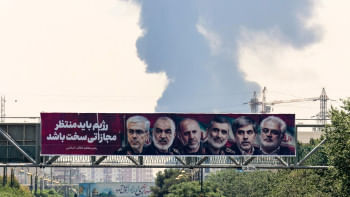Steel bumpers and hybrid headaches: Current automobile trends in Bangladesh

In the fast-paced realm of global car culture, even the modest Bangladeshi market has witnessed some serious gear shifts over the past ten years. Although its impact on the grand stage may be subtle, Bangladesh has been riding the waves of worldwide trends, putting its unique spin on things. From the surge of crossovers to the Chinese invasion and the slow but steady surge of electric vehicles (EVs), let's take a spin through the standout trends that have revved up Bangladesh's automotive landscape.
Rise of the crossover
Just like elsewhere on the planet, sedans have taken a back seat in Bangladesh to the soaring popularity of the SUV-inspired crossover. To the point where even vehicles that were never meant to be rugged are getting the rough-and-tough treatment just to fit into the crossover club.
Case in point: "Compact SUV" – an oxymoronic term coined by carmakers — are essentially lifted front-wheel-drive hatchbacks with delusions of SUV grandeur. And let's not forget the new minivans, trying earnestly to look like they are ready to conquer the off-road, even though they are more suited to the school run and will get stuck in the first sand dune they roll into. Despite this shift, sedans still maintain their stronghold in the reconditioned market.

The rise of Chinese brands
A decade ago, Chinese cars, along with everything else really, were the punchline of every automotive joke, perceived as subpar in terms of quality and performance, to put it mildly. And to be fair, most of them deserved it.
However, the tide has turned, and the quality of Chinese cars has undergone a notable transformation over the past decade. Chinese automakers like Haval, MG, and Chery have muscled their way into Bangladesh with feature-packed rides at wallet-friendly prices. This shift has been particularly evident among first-time car buyers, many of whom now consider Chinese models over reconditioned cars.
Changan, the latest Chinese entrant to the Bangladeshi market, exemplifies this trend. Their primary offering, the Alsvin sedan, directly competes with established reconditioned models like the Toyota Axio.
The love-hate relationship with hybrids
Hybrid vehicles have seen a surge in popularity among Bangladeshi consumers, driven by the promise of penny-pinching at the pump. While some opt for hybrids for their fuel-saving credentials, others are drawn to premium brands offering hybrid options with hair-raising 0-100 performance.
The reconditioned market, however, has witnessed a love-hate relationship with hybrids. Many reconditioned hybrids gained popularity initially, but concerns about battery maintenance costs have caused some buyers to reconsider.
The cost of hybrid battery maintenance, which can amount to half the car's purchase price in extreme cases such as water damage, has created a dilemma for consumers, weighing the long-term benefits against potential sudden financial calamity.

Design dramas
Car design in the past decade witnessed a departure from large, aerodynamic blobs on wheels towards bold and attention-grabbing "look at me" aesthetics. From oversized grilles that, in some cases, could double as barbecue grills for winter nights to "floating roof" designs, and coupe rooflines that pretty much eliminate rear headspace, cars these days are all about grabbing attention.
Some have taken it even further, with certain automakers opting for "Wedge nose" designs, making their cars look like they are auditioning for a sci-fi movie, while the other automakers seem intent on convincing us that their vehicles were custom-crashed for that edgy, avant-garde appeal.
The on-again, off-again steeles
Only in Bangladesh would you find cars sporting extra steel bumpers — or "steeles" as they are colloquially known — slapped on to protect against those pesky low-speed collisions because paint-to-sample touch-ups are expensive.
Initially massive and comically sized, steeles appeared to fall out of favour in the early-2020s due to their tacky appearance. However, practical considerations have seen their return in sleeker forms, especially on economy cars, where protecting expensive crash bumpers from damage remains a priority.
While most premium car owners and some brave economy car owners still avoid them, steels have become an integral part of the local automotive aesthetic, making sure your car looks like its wearing braces

The slow trickle of Electric Vehicles (EVs)
Despite the global momentum towards electric vehicles (EVs), Bangladesh seems content with dragging its feet. Chinese brands like MG brought in a few EVs to the market as early as 2020, and a handful of grey-market Teslas and other electric exotics have also sneaked in, adding a dash of Silicon Valley mystique to our streets.
However, there are signs of change, with premium brands like Mercedes, BMW, and Audi launching full EV line-ups. Additionally, initiatives like the "Ekhon Charge" network suggest that EVs could be the next big trend in the Bangladeshi automotive market, especially as government regulations and infrastructure catch up.
Photo: BMW; Mitsubishi

 For all latest news, follow The Daily Star's Google News channel.
For all latest news, follow The Daily Star's Google News channel. 



Comments